Die sieben Geheimnisse der NVA (2018)
장르 : 다큐멘터리
상영시간 : 0분
연출 : Matthias Hoferichter
시놉시스

냉전 시대 스파이 전쟁의 주 무대가 된 베를린, MI6의 요원을 살해하고 핵폭탄급 정보를 담고 있는 전 세계 스파이 명단을 훔쳐 달아난 이중 스파이를 잡기 위해 MI6 최고의 요원 로레인 브로튼(샤를리즈 테론)이 급파된다. 각 국의 스파이들은 명단을 차지하기 위해 혈안이 되고, 로레인 역시 동독과 서독을 오가며 미션을 수행한다. 리스트를 회수하기 위해서는 베를린에 10년 동안 있었던 자신을 믿어야 한다는 데이빗 퍼시벌(제임스 맥어보이)은 어딘가 수상한 구석이 있다. 로레인은 그를 감시하는 1년차 프랑스 스파이 델핀 라살(소피아 부텔라)과 강렬한 끌림을 느끼는데...
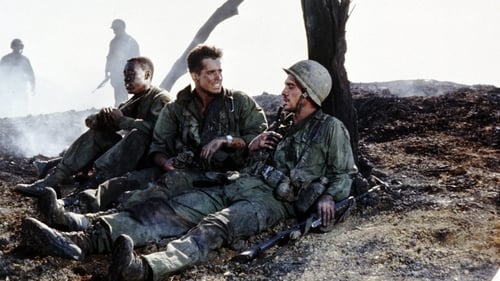
1969년 미국에서 히피족과 학생들이 반전을 주창하며 격력하게 데모를 하고 있을 즈음, 베트남의 아사우 계곡에서는 연일 결렬한 전투가 반복되고 있었다. 적의 기습으로 신병을 잃고 만 3분대장 프란츠는 견딜 수 없는 절망감을 술과 여자로 달랜다. 휴가 후 3분대는 937고지 탈환작전에 참가하라는 명령을 받는다 여기서부터 장장 10일간 처음 공격인원 600명 중 420명이 사망하는 처절한 전투가 벌어진다. 10일간의 전투가 끝나고 살아남은 병사 몇명이 나무와 풀, 베트공도 모두 사라져버린 고지에 서서 허탈해한다.

Heiko, 51, a sheet metal former trained in GDR times, unemployed since the fall of the wall, pisses on his bed and on the carpet. The film encounters Heiko's dysfunctional family history and his decision to be alone forever. Piss and GDR, a reflection of how deep the consequences of the fall of the Wall are still in the bodies of some people to this day.
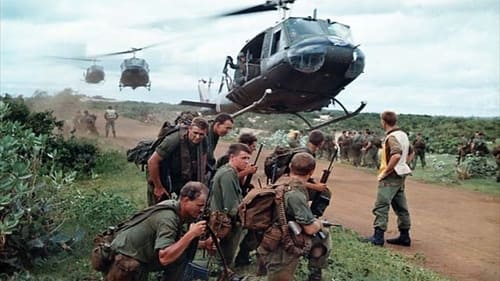
베트남 전쟁에 반대하는 자들의 입장과 관련 맥락을 뉴스 영상 등과 영화 그리고 실제 인물들의 인터뷰를 통해 알아본다. 어떻게 미국의 인종차별주의와 독선적인 군국주의의 기조가 이 끔찍한 사태를 야기하고 이끌었는지를 보여준다. 또한 베트남 사람들의 목소리로 전쟁이 그들에게 미친 영향과 왜 그들이 미국과 서양에 맞서 싸우는지에 대한 이야기도 들어본다.

18-year old Georg and 13-year old Barbara have been playing together as children. Play becomes love later, which leads to a catastrophe , as their parents are hostile leading to file a report to the court, as Barbara is still under age.

This first co-production between the GDR and Great Britain is intended to contribute to an understanding of the situation and attitudes of millions of working people in opposing social orders. Using the example of shipyard workers, fishermen, the brigade and family of a trade union active cook and unemployed person of various ages and professions in Newcastle on the one hand and a brigade of crane operators of the Warnowwerft and fishermen of the Warnemünde cooperative on the other hand, insights into the way of life and attitudes of people of our time are to be conveyed.
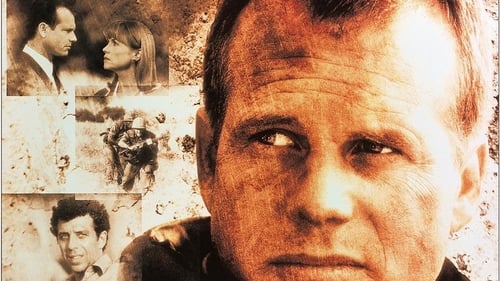
Something in his past keeps career Army man John Paul Vann from advancing past colonel. He views being sent to Vietnam as part of the US military advisory force a stepping stone to promotion. However, he disagrees vocally (and on the record) with the way the war is being run and is forced to leave the military. Returning to Vietnam as a civilian working with the Army, he comes to despise some South Vietnamese officers while he takes charge of some of the U.S. forces and continues his liaisons with Vietnamese women.

Jette and Johannes have been living together for two years when Johannes suggests that they "legalize" their relationship. Jette loves him, but the proposal of marriage terrifies her.
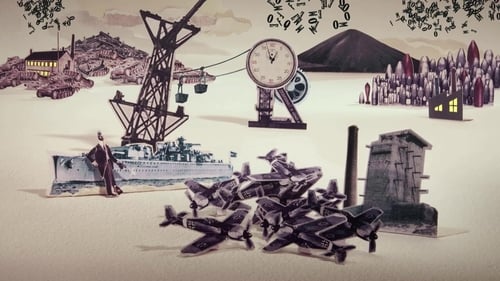
How did Nazi Germany, from limited natural resources, mass unemployment, little money and a damaged industry, manage to unfurl the cataclysm of World War Two and come to occupy a large part of the European continent? Based on recent historical works of and interviews with Adam Tooze, Richard Overy, Frank Bajohr and Marie-Bénédicte Vincent, and drawing on rare archival material.

Beyond Citizen Kane (1993) is a British documentary film directed by Simon Hartog, produced by John Ellis, and broadcast on Channel 4. It details the dominant position of the Rede Globo media group in the Brazilian society, discussing the group's influence, power, and political connections.[2] Globo's president and founder Roberto Marinho came in for particular criticism, being compared with fictional newspaper tycoon Charles Foster Kane, created by Orson Welles for the 1941 film Citizen Kane. According to the documentary, Marinho's media group engages in the same Kane wholesale manipulation of news to influence the public opinion.
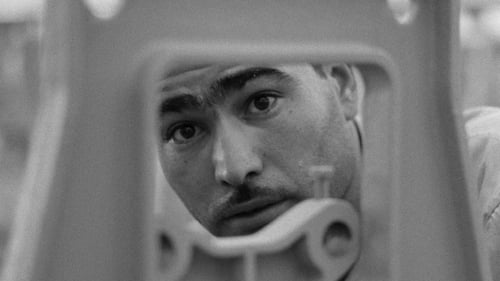
The film is a reportage showing the help of workers from the GDR in the industrial reconstruction of Syria. We witness the friendly relationship between workers from both countries, who are jointly involved in the construction of the cotton spinning mill in Homs. In impressive pictures the exoticism of the environment and the mentality of the Syrian hosts is shown. At the same time it becomes clear that the workers from the GDR become 'ambassadors of the GDR' through their collegial behaviour and good work.
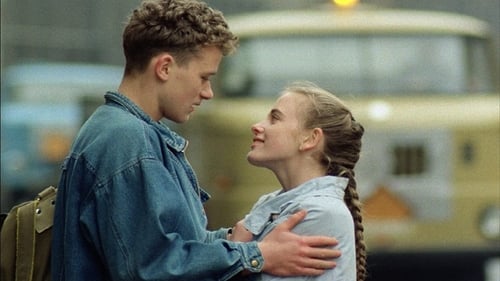
Frank, a tenth grade student, falls in love with his classmate Regine. His father is a well-connected plant manager in the GDR; Regine's mother is a single parent with four children. Regine wants to become a kindergarten teacher, but her grades are poor and she is not allowed to apply for technical college. Frank champions her and seeks an open discussion about these rigid regulations. But his criticism is nipped in the bud.


In 1989, thirteen GDR scientists and technicians set off from East Berlin to the Georg Forster research station in the Antarctic. During their expedition the Berlin Wall fell on November 9th. Cut off from the images that go around the world, the men can only experience the historical events passively. When they returned in the spring of 1991, their homeland was a foreign country. The documentary reconstructs the thoughts and feelings of the East German researchers on the basis of eyewitness accounts, diary excerpts, letters, film material, grandiose landscape shots from the location of the action and unique photos to make the consequences of the events tens of thousands of kilometers away on the small GDR expedition in the middle of the eternal ice tangible.
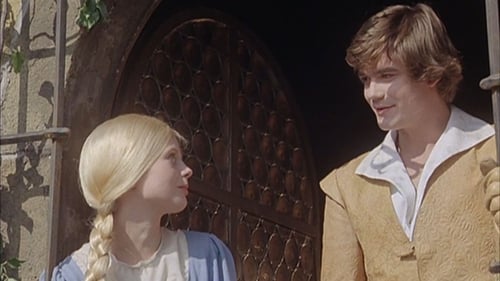
Adaptation of the classic fairytale.
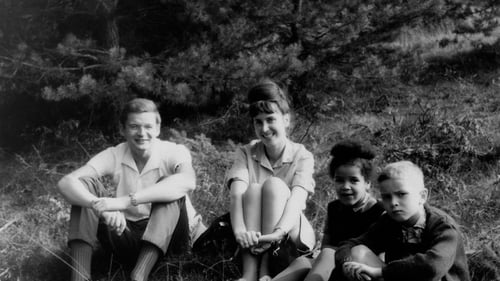
In the 1960s, a white couple living in East Germany tells their dark-skinned child that her skin color is merely a coincidence. As a teenager, she accidentally discovers the truth. Years before, a group of African men came to study in a village nearby. Sigrid, an East German woman, fell in love with Lucien from Togo and became pregnant. But she was already married to Armin. The child is Togolese-East German filmmaker Ines Johnson-Spain. In interviews with Armin and others from her childhood years, she tracks the astonishing strategies of denial her parents, striving for normality, developed following her birth. What sounds like fieldwork about social dislocation becomes an autobiographical essay film and a reflection on themes such as identity, social norms and family ties, viewed from a very personal perspective.













